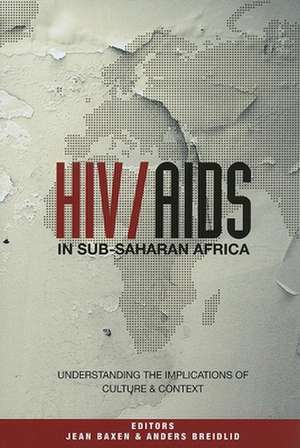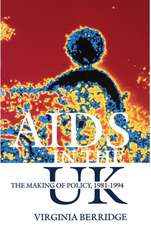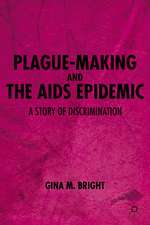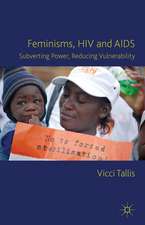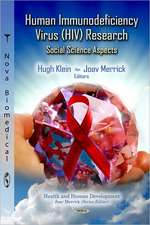HIV/AIDS in Sub-Saharan Africa: Understanding the Implications of Culture and Context
Editat de Jean Baxen, Anders Breidliden Limba Engleză Paperback – 9 noi 2009
Popular understanding of the HIV/AIDS pandemic in Sub-Saharan Africa is riddled with contradiction and speculation. This book explores the various contexts in which debate about HIV/AIDS takes place and examines how the pandemic is perceived by scholars, religious leaders, and traditional healers in communities in and around South Africa. The contributors focus on not only the cultural and contextual practices, but also the methodological and epistemological orientations that shape interpretations of this disease.
HIV/AIDS in Sub-Saharan Africa avoids a simplistic approach to the pandemic by exploring the complex and sometimes contradictory situations in which HIV/AIDS is discussed. The book is as much about identity construction as it is about the disease. The authors recognize the interrelatedness of sex, sexuality, identity, and HIV/AIDS in the shaping of individual and collective identities and have thus gone beyond merely asking questions about what people know
HIV/AIDS in Sub-Saharan Africa avoids a simplistic approach to the pandemic by exploring the complex and sometimes contradictory situations in which HIV/AIDS is discussed. The book is as much about identity construction as it is about the disease. The authors recognize the interrelatedness of sex, sexuality, identity, and HIV/AIDS in the shaping of individual and collective identities and have thus gone beyond merely asking questions about what people know
Preț: 205.94 lei
Nou
Puncte Express: 309
Preț estimativ în valută:
39.41€ • 41.25$ • 32.61£
39.41€ • 41.25$ • 32.61£
Carte tipărită la comandă
Livrare economică 05-19 aprilie
Preluare comenzi: 021 569.72.76
Specificații
ISBN-13: 9789280811797
ISBN-10: 9280811797
Pagini: 160
Dimensiuni: 152 x 229 x 8 mm
Greutate: 0.27 kg
Editura: Brookings Institution Press
Colecția United Nations University Press
ISBN-10: 9280811797
Pagini: 160
Dimensiuni: 152 x 229 x 8 mm
Greutate: 0.27 kg
Editura: Brookings Institution Press
Colecția United Nations University Press
Notă biografică
Jean Baxen is associate professor at the Faculty of Education, Rhodes University, South Africa.
Anders Breidlid is professor of international education at Oslo University College, Norway.
Anders Breidlid is professor of international education at Oslo University College, Norway.
Descriere
Popular understanding of the HIV/AIDS pandemic in Sub-Saharan Africa is riddled with contradiction and speculation. This book explores the various contexts in which debate about HIV/AIDS takes place and examines how the pandemic is perceived by scholars, religious leaders, and traditional healers in communities in and around South Africa. The contributors focus on not only the cultural and contextual practices, but also the methodological and epistemological orientations that shape interpretations of this disease.
HIV/AIDS in Sub-Saharan Africa avoids a simplistic approach to the pandemic by exploring the complex and sometimes contradictory situations in which HIV/AIDS is discussed. The book is as much about identity construction as it is about the disease. The authors recognize the interrelatedness of sex, sexuality, identity, and HIV/AIDS in the shaping of individual and collective identities and have thus gone beyond merely asking questions about what people know
HIV/AIDS in Sub-Saharan Africa avoids a simplistic approach to the pandemic by exploring the complex and sometimes contradictory situations in which HIV/AIDS is discussed. The book is as much about identity construction as it is about the disease. The authors recognize the interrelatedness of sex, sexuality, identity, and HIV/AIDS in the shaping of individual and collective identities and have thus gone beyond merely asking questions about what people know
